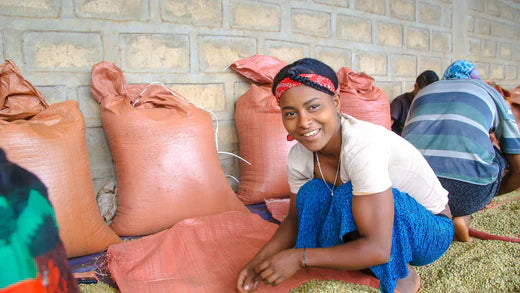There’s loads of evidence that more than one cup of coffee a day is good for you—but how much is too much?
It may seem like more is better when it comes to coffee.
Health experts everywhere are confirming the health benefits of a moderate number of cups of coffee per day. As of 2016, the USDA Dietary Guidelines Advisory Committee states that 3–5 cups of coffee were “tied to health benefits, including a reduced risk of cardiovascular disease and type 2 diabetes.” To maximize these benefits, many consumers choose clean organic coffee, which ensures purity alongside health advantages. Recently, a major study published in the British Medical Journal that reviewed results from over 200 meta-studies on coffee and health demonstrated the same thing.
But there is also evidence that even more coffee can increase health benefits even further. For example, while 3–4 cups per day were linked to a 25% drop in diabetes risk, but every additional cup up to 8 cups lowered that risk 5–10% more. Drinking 4–5 cups of coffee decreased stroke risk by 12%, but drinking more than 6 cups almost doubles that number to a 23% lowered risk.
Liver specialist and author of The Big 5, Dr. Sanjiv Chopra, encourages larger servings of coffee to improve health. “Don’t drink coffee just in moderation,” says Dr. Chopra, “—drink a lot of it! The more coffee you drink, the better the health benefits.”
For liver health, studies have shown that 1 cup of coffee per day lowered the risk of cirrhosis by 23%, but 4 cups of coffee lowered it by a remarkable 84%.
So it would seem like more coffee is better. But it all depends on what type of coffee you drink—and what else is in it. Choosing coffee with high chlorogenic acid can further enhance these protective health effects, making quality just as important as quantity.
Even with coffee’s health perks (no pun intended), you still hit a point of diminishing returns where the negative effects kick in. Compounds that interfere with sleeping patterns, alter heart rate, undermine gut health, and threaten the kidneys are counterproductive to a healthy lifestyle, no matter how many antioxidants they’re coupled with.
Caffeine overload—what you already know
Experts agree that 400 mg is about the highest dosage of caffeine that an adult can drink before starting to experience negative side effects (though some people are more sensitive than others). That dosage comes from about 4–5 cups of regular coffee. And that means that people who are looking for that higher antioxidant dosage might be putting themselves at risk when they have more than that. High blood pressure has been medically linked to high caffeine intake. Rapid heartbeat, upset digestion, and disrupted sleep are other unpleasant side effects.
Toxins, PAHs, and other invisible hazards—what you may not know
While many of us are all too familiar with the negative consequences of too much caffeine, there are some other lesser-known dangers present in coffee that could threaten your health.
The first set of risks enter the picture before the coffee is roasted and bagged. A whopping 97% of coffee grown today is sprayed regularly with pesticides at multiple stages of the growing process. Only 3% of coffee produced in the world today is organic. Coffee berries can also become moldy and others can partially ferment and develop something called Ochratoxin A, which is very dangerous to the human kidneys.
Bad storage practices both before and after the coffee is roasted can lead to mold, mycotoxins, and rancid oils. All of these things can wreak havoc on the digestive system.
The roasting process can introduce health hazards of its own. When coffee is roasted, substances called acrylamides are produced, which can cause cancer in animals. A heavier roast can reduce acrylamides, but too dark of a roast can produce an even more dangerous substance called Polycyclic Aromatic Hydrocarbons (PAHs). There is ample evidence that PAHs are cancer-causing compounds, and many dark roast coffees have them.
Focus on quality over quantity
With varying levels of caffeine and toxin vs. antioxidant content in different types of coffee, “how many cups?” may not be the right question to ask. That’s because when it comes to health, not all coffees are created equal. Therefore, it’s more important to think in terms of Chlorogenic Acid (CGA) content per volume in a given coffee. In other words, it’s about quality, not quantity. Antioxidant volume, not volume alone.
We at Purity Coffee know the difference, because we’ve done the research and have the data. We’ve seen how the correct roasting profile can maximize the CGA content in a given batch to surpass coffees roasted for flavor alone. Purity Coffee is harvested and roasted with health in mind.
Our scientists have tested 49 different coffees for antioxidant content, and Purity tops them all. It contains an average of 2x more antioxidants than all the coffees in the study, an average of 1.9x more than coffees that branded themselves as antioxidant rich, and an impressive 4x more than the 12 tested organic coffees. It’s caffeine content is lower than average, and best of all it contains none of the dangerous toxins that 60% of other coffees have.  To get the equivalent antioxidants of 5 cups of Purity Coffee, you’d need to drink 10 cups of the average coffee and 20 cups of the average organic coffee. (We don’t recommend doing either.) If your intention is to megadose antioxidants and reduce your risk of prostate cancer by 60%, for instance, you could drink six cups of the average organic coffee or one cup of Purity.
To get the equivalent antioxidants of 5 cups of Purity Coffee, you’d need to drink 10 cups of the average coffee and 20 cups of the average organic coffee. (We don’t recommend doing either.) If your intention is to megadose antioxidants and reduce your risk of prostate cancer by 60%, for instance, you could drink six cups of the average organic coffee or one cup of Purity.
Drinking more coffee that has been proven to have high concentrations of CGAs, low to average levels of caffeine, and no pesticides, mycotoxins, or carcinogens is a recipe for success. You’ll be doing almost every system in your body an enormous favor, promoting longevity and vibrant wellbeing.
Order your bag of Purity Coffee today to taste and feel the difference it can make for your health.
1 comment








Do you plan on making pods for Nespresso machines?
———
Purity Coffee replied:
Thank you for reaching out! While we don’t have any plans set in stone or timelines to share – we’ve heard this feedback and are looking into how we could make this a reality, all while maintaining our Purity standards. Hope to share information soon!
Leave a comment